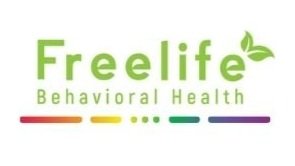From Survival to Self-Love: Queer Black History & Mental Health
To talk about healing as a queer Black person is to acknowledge a long legacy of survival. It’s not just about individual experiences—it’s about a collective history shaped by resistance, erasure, pride, pain, and joy. Understanding queer Black history isn’t just about the past. It’s a key to understanding how identity, mental health, and self-worth take shape in the present.
Many of us are taught to shrink—to hide pieces of who we are in order to stay safe. But within queer Black history, there are blueprints for wholeness. And when mental health care is affirming, informed, and rooted in that history, it becomes more than treatment—it becomes liberation.
Survival as a Starting Point
For decades, queer Black individuals have existed in the margins of the margins. Not only pushed out of white LGBTQ+ spaces but also often misunderstood or rejected within Black communities. This double invisibility has left many of us without a place to fully be ourselves.
Queer Black elders—whether public figures or unnamed community builders—had to navigate these realities while carving out spaces to exist, connect, and thrive. From the Harlem Renaissance’s underground ballrooms to Bayard Rustin’s civil rights organizing, queer Black history shows us people who found ways to survive and make change, even when the world refused to see them.
This survival mode—constantly masking, shrinking, or performing safety—has mental health consequences. It can lead to chronic stress, internalized shame, and anxiety that doesn’t always have a name. But survival is not the end of the story. It’s the starting point.
Mental Health in the Context of Identity
Mental health isn’t just chemical or individual—it’s also social, political, and cultural. For queer Black folks, therapy and healing must acknowledge the realities of racism, homophobia, transphobia, and generational trauma. These aren’t side notes. They’re central to our experience.
Far too often, traditional therapy models ignore this context. People are told to “communicate better” or “self-soothe,” without examining the deeper wounds caused by rejection, microaggressions, and generational silence.
That’s why culturally responsive, queer-affirming therapy is essential. It creates space for people to explore not just what hurts, but also where that pain comes from. Healing in marginalized communities means understanding that “many mental health concerns stem from the impacts of oppression—not personal failure.”
Self-Love as Resistance
Learning to love yourself as a queer Black person isn’t easy when you’ve grown up being told you’re too much, not enough, or just plain wrong. But self-love is a form of resistance. It’s a way of saying, “I exist, and I deserve to exist fully.”
This doesn’t always look like loud pride or declarations on social media. Sometimes it’s quiet. Setting boundaries. Cutting off people who don’t respect you. Letting yourself rest. Saying “no” when you’ve been taught to people-please. Taking up space in therapy.
Queer Black history reminds us that self-love has always been radical. Whether it was James Baldwin refusing to sanitize his truth or Marsha P. Johnson fighting for trans rights in a world that tried to erase her—there is power in owning your identity, even when it’s hard.
Carrying the Past Into the Future
There’s no way to talk about present-day mental health without honoring the people who came before us. The ones who survived so we could speak more freely, love more openly, and build better systems of care.
When we learn about queer Black history, we gain more than facts—we gain permission. Permission to slow down. To grieve. To celebrate. To unlearn shame and replace it with curiosity. To explore gender and sexuality without fear. To find joy in being exactly who we are.
The path to self-love isn’t linear. Some days it’s messy. But it’s worth walking—and no one should have to walk it alone.
Ready to Begin Your Own Healing Journey?
If you’re navigating identity, grief, anxiety, or the weight of being seen as “other,” you don’t have to figure it out on your own. You deserve therapy that affirms you, reflects you, and helps you reconnect with the parts of yourself that you’ve had to hide.
Book a session with Freelife therapist Julleon Garrison, LCSW. Julleon works with queer, Black, and intersectional individuals who are ready to move from survival into self-acceptance and personal growth. You don’t need to have it all figured out. You just need a place to start.
